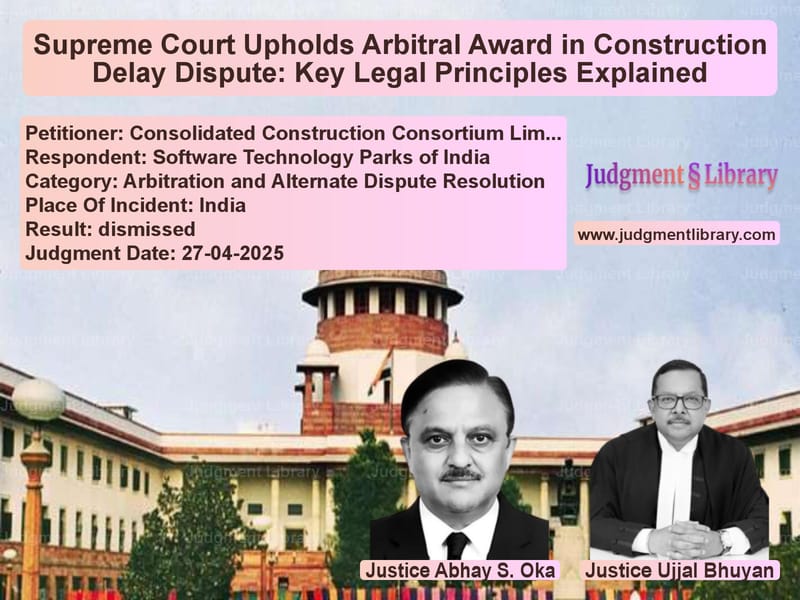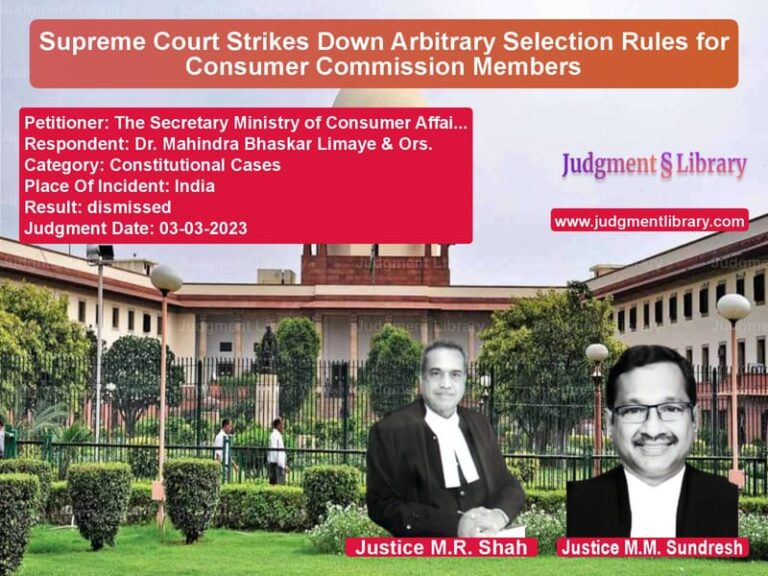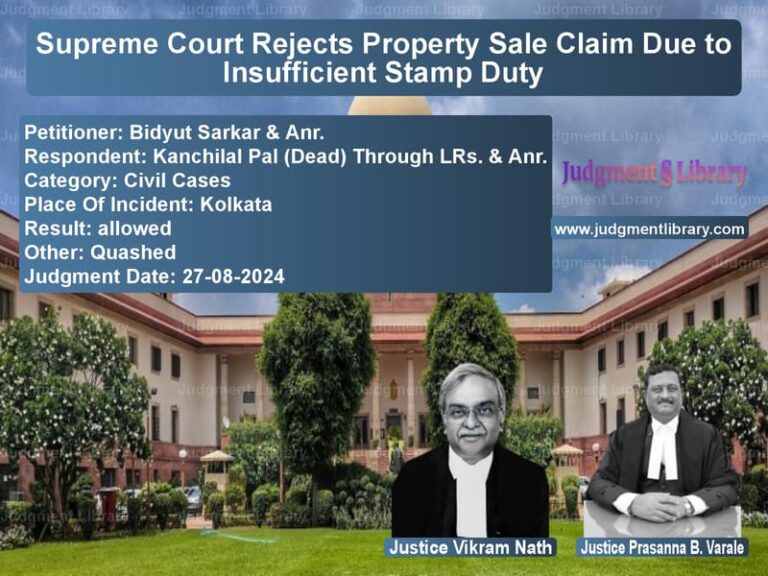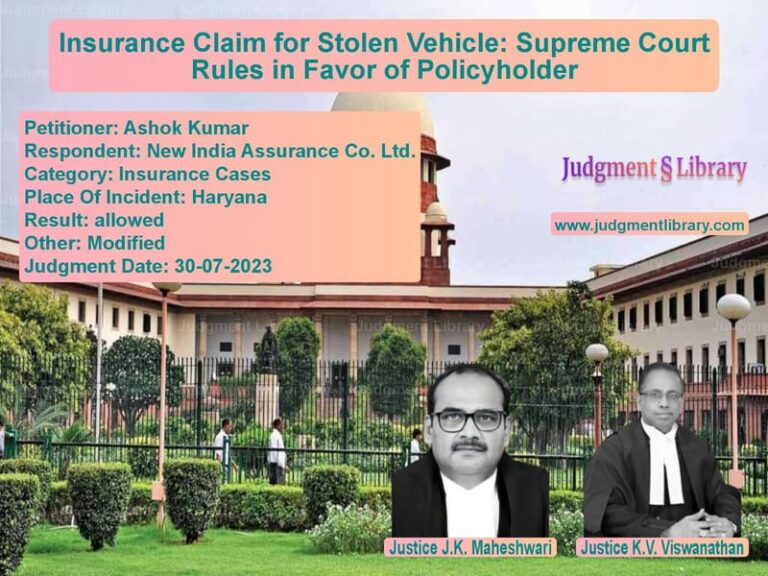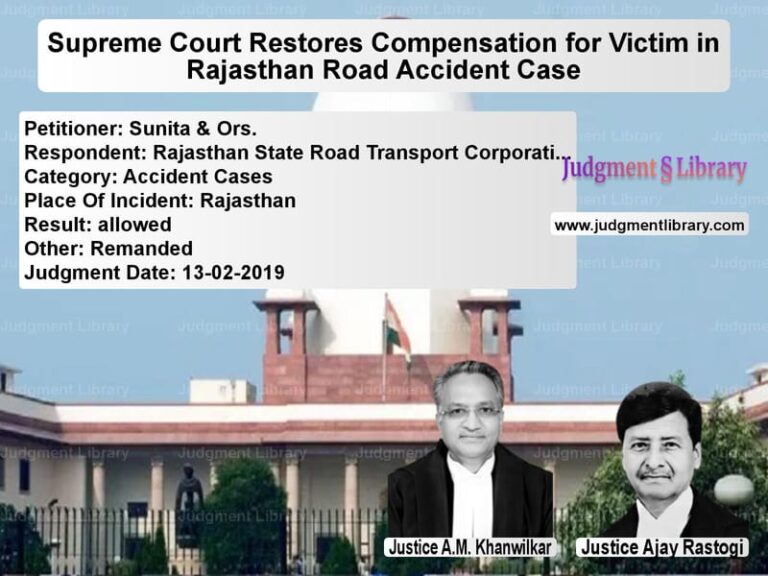Supreme Court Upholds Arbitral Award in Construction Delay Dispute: Key Legal Principles Explained
The Supreme Court of India recently delivered a significant judgment in the case of Consolidated Construction Consortium Limited vs. Software Technology Parks of India, addressing crucial legal principles governing arbitration awards, contract law, and liquidated damages in construction contracts. The judgment, delivered by Justices Abhay S. Oka and Ujjal Bhuyan, provides important clarity on the scope of judicial intervention in arbitral awards under Section 34 of the Arbitration and Conciliation Act, 1996.
The dispute arose from a construction contract awarded by Software Technology Parks of India (STPI) to Consolidated Construction Consortium Limited (CCCL) for building office spaces and an incubation center. The original contract, valued at Rs. 16.48 crores, had a completion deadline of 15 January 2007. However, CCCL completed the project only by 30 November 2007, resulting in a 10-month delay. STPI deducted Rs. 82.43 lakhs as liquidated damages from CCCL’s payments, invoking Clause 26 of their contract agreement.
CCCL challenged this deduction through arbitration, but the sole arbitrator upheld STPI’s right to levy liquidated damages, dismissing all claims and counterclaims. When CCCL approached the Madras High Court under Section 34 of the Arbitration Act, a Single Judge set aside the arbitral award, holding that the extension of time granted to CCCL precluded STPI from claiming liquidated damages. However, a Division Bench of the High Court reversed this decision, restoring the arbitral award. CCCL then appealed to the Supreme Court.
Before the Supreme Court, CCCL’s counsel argued that “the Division Bench of the High Court was not at all justified in exercising power under Section 37 of the 1996 Act by reversing the decision of the learned Single Judge passed under Section 34.” They contended that “the respondent had extended the time for completion of the contractual work. Appellant had completed the construction within the extended period. Therefore, there was no delay in the contractual performance. Extension of time and levy of liquidated damages cannot go hand-in-hand.”
STPI’s counsel countered these arguments, stating that “liquidated damages were rightly levied by the respondent. Such liquidated damages are in conformity with Section 55 of the Indian Contract Act, 1872.” They emphasized that “in the review meeting held on 18.12.2006, appellant was unequivocally forewarned that grant of extension of time for completion of the contract work would be without prejudice to the right of the respondent to recover liquidated damages.”
The Supreme Court carefully analyzed the contractual clauses and legal provisions involved. Clause 26 of the contract stated that “if the contractor fails to complete the work by the date stated in the Appendix or within any extended time under clause 28 hereof the contractor shall pay or allow the employer to deduct the sum named in the Appendix as ‘Liquidated Damages’.” The Court noted that the arbitrator had found STPI suffered actual losses due to the delay, including continued rental payments for their old premises and lost rental income from the new building.
The Court emphasized the limited scope of judicial intervention in arbitral awards, stating: “Section 34 is not in the nature of an appellate provision. It provides for setting aside an arbitral award that too only on very limited grounds… An arbitral award is not liable to be interfered with only on the ground that the award is illegal or is erroneous in law which would require re-appraisal of the evidence adduced before the arbitral tribunal.”
The judgment clarified that “the role of the court under Section 34 of the 1996 Act is clearly demarcated. It is a restrictive jurisdiction and has to be invoked in a conservative manner. The reason is that arbitral autonomy must be respected and judicial interference should remain minimal otherwise it will defeat the very object of the 1996 Act.”
Ultimately, the Supreme Court dismissed CCCL’s appeal, upholding the Division Bench’s decision to restore the arbitral award. The Court held that “learned Single Judge had clearly gone beyond the grounds provided in Section 34 of the 1996 Act to set aside the arbitral award… There was no justification for setting aside the arbitral award by taking a different view. View taken by the arbitral tribunal is certainly a possible and plausible view.”
This judgment reinforces several key legal principles: the binding nature of contractual terms regarding liquidated damages, the limited scope for judicial interference in arbitral awards, and the importance of maintaining arbitral autonomy under Indian law. It serves as an important precedent for construction disputes and arbitration matters in India.
Petitioner Name: Consolidated Construction Consortium Limited.Respondent Name: Software Technology Parks of India.Judgment By: Justice Abhay S. Oka, Justice Ujjal Bhuyan.Place Of Incident: India.Judgment Date: 27-04-2025.Result: dismissed.
Don’t miss out on the full details! Download the complete judgment in PDF format below and gain valuable insights instantly!
Download Judgment: consolidated-constru-vs-software-technology-supreme-court-of-india-judgment-dated-27-04-2025.pdf
Directly Download Judgment: Directly download this Judgment
See all petitions in Arbitration Awards
See all petitions in Contract Disputes
See all petitions in Commercial Arbitration
See all petitions in Enforcement of Awards
See all petitions in Damages and Compensation
See all petitions in Judgment by Abhay S. Oka
See all petitions in Judgment by Ujjal Bhuyan
See all petitions in dismissed
See all petitions in supreme court of India judgments April 2025
See all petitions in 2025 judgments
See all posts in Arbitration and Alternate Dispute Resolution Category
See all allowed petitions in Arbitration and Alternate Dispute Resolution Category
See all Dismissed petitions in Arbitration and Alternate Dispute Resolution Category
See all partially allowed petitions in Arbitration and Alternate Dispute Resolution Category

